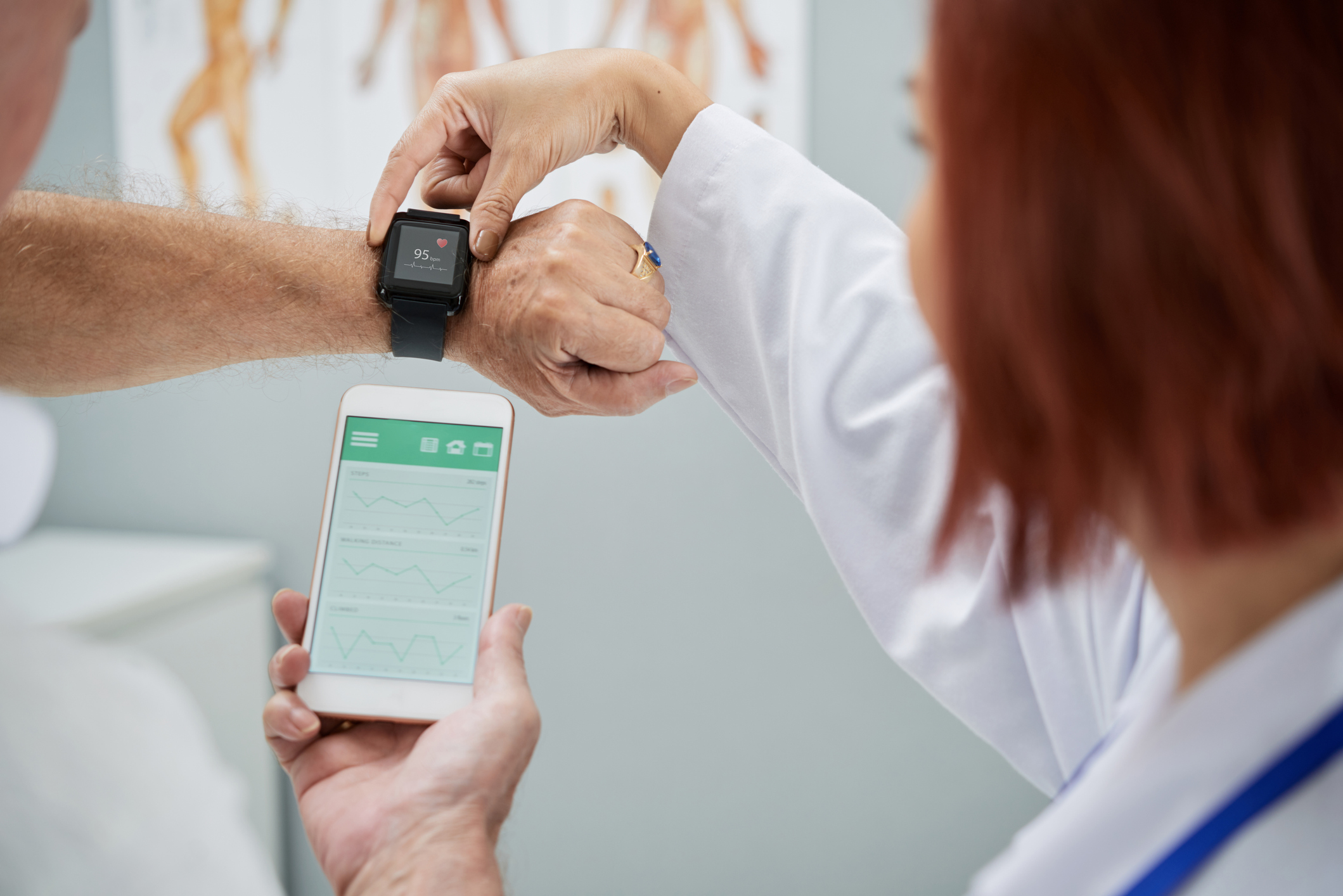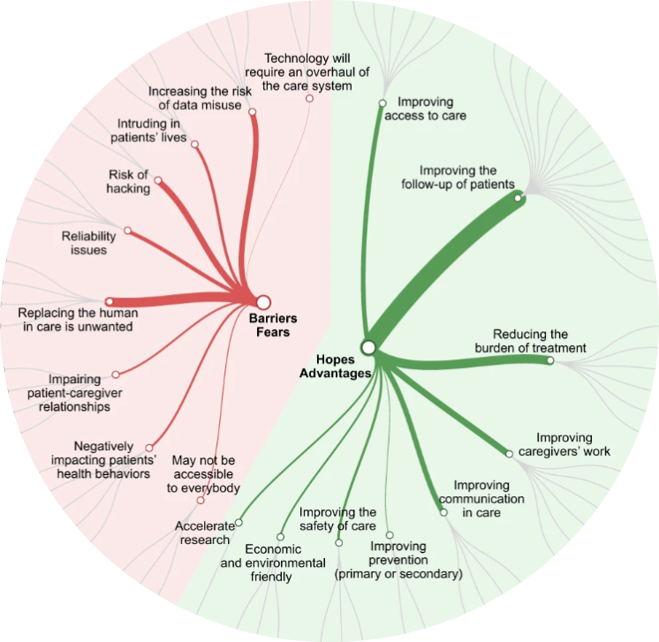Digital & Innovation
Patients’ views of wearable devices and AI in healthcare

Wearable biometric monitoring devices (BMDs) and artificial intelligence (AI) enable the remote measurement and analysis of patient data in real time. These technologies have generated a lot of “hype,” but their real-world effectiveness will depend on patients’ uptake.
In this recent study, the largest and most comprehensive view of chronic patients’ perspectives of the use of these technologies in healthcare, the authors report two experiments to document the perception of patients with chronic conditions on the use of BMDs and AI in care. 50% of patients felt that the development of digital tools and AI in healthcare was an important opportunity and 11% considered it a danger. In particular, patients feared that the misuse of technology would lead to unwanted replacement of humans and threaten the humanistic aspect of health and care.
In the second part of the study, the authors showed that 35% of patients would refuse to integrate at least one existing or soon-to-be available interventions using BMD- and AI-tools in their care. In addition, only a minority of participants were ready to integrate fully automatic AI-based tools in their care.
The results highlight that patients intuitively think that AI should help clinicians “predict” outcomes, but that decisions, actions, and recommendations should remain a human task. Technology would be like a “driver assistance” for clinicians. Even among patients who were the most ready for the use of technology in their care, they would only see AI as a complement—and not as replacement—for human care for situations related to sensitive topics (cancer) or which involved lasting interventions (monitoring for chronic conditions).
The number of studies evaluating new BMD- or AI-based tools is rapidly increasing and their costs are decreasing. The current literature focuses on the technological aspects of these tools but neglects patients’ perspectives of their use in healthcare.
In this paper, the authors showed that most patients would agree to use these new technologies in their care if controlled by human caregivers. These findings call for a novel reflection about how technology should be integrated in care processes to avoid a negative impact on patient care, the generation of unnecessary burdens or the intrusion in their lives.

News & Trends - MedTech & Diagnostics

AI-assisted colonoscopy boosts polyp and adenoma detection
MedTech & Diagnostics News: In a standard colonoscopy, as many as one-third of colorectal polyps and adenomas can go by […]
MoreNews & Trends - Pharmaceuticals

‘Every day of delay is costing Australian lives’, says Rare Cancers Australia CEO
Pharma News: Rare Cancers Australia (RCA) has voiced its disappointment alongside the pharmaceutical industry following the Pharmaceutical Benefits Advisory Committee’s […]
MoreNews & Trends - Pharmaceuticals

Government’s silence on Senate report leaves cancer patients in limbo
Pharma News: NeuroEndocrine Cancer Australia has urged the government to respond to the Senate report on equitable access to diagnosis […]
More